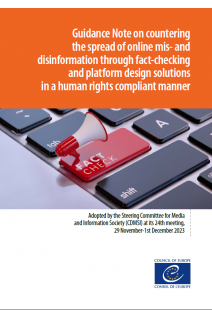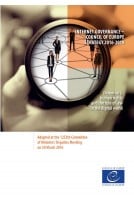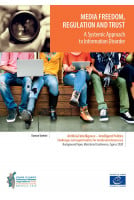As recognised by the Committee of Ministers, in Recommendation CM/Rec(2022)4 on promoting a favourable environment for quality journalism in the digital age, disinformation undermines trust in the media and threatens the reliability of information that feeds public debate and enables democracy.
As noted in Recommendation CM/Rec(2022)12 on electoral communication and media coverage of election campaigns, individuals are exposed to various kinds of disinformation online at all levels, making it more challenging to maintain the integrity of elections, ensure healthy pluralism, and protect the democratic process from manipulation. Malicious actors, including some foreign governments, often spread disinformation online to disrupt free and fair elections and undermine the very notion that facts matter to democracy and can be meaningfully identified and discussed. Also, there is a growing amount of disinformation generated and spread with Artificial Intelligence tools that poses distinctive threats to democratic dialogue. False content often spreads at such a large scale that it cannot be tackled solely by human intervention. Importantly, however, measures such as support for fact-checking, platform-design solutions and user empowerment may all contribute to reducing the spread and negative impacts of online mis- and disinformation.
By implementing all these measures coherently and continuously adverse implications for democracy and individuals’ safety and well-being may be prevented.






